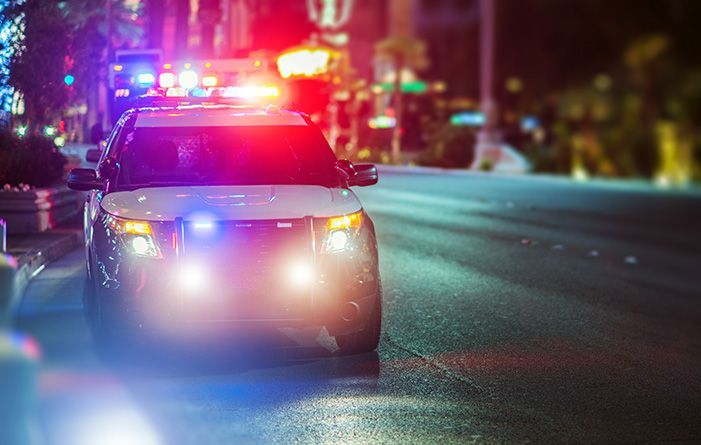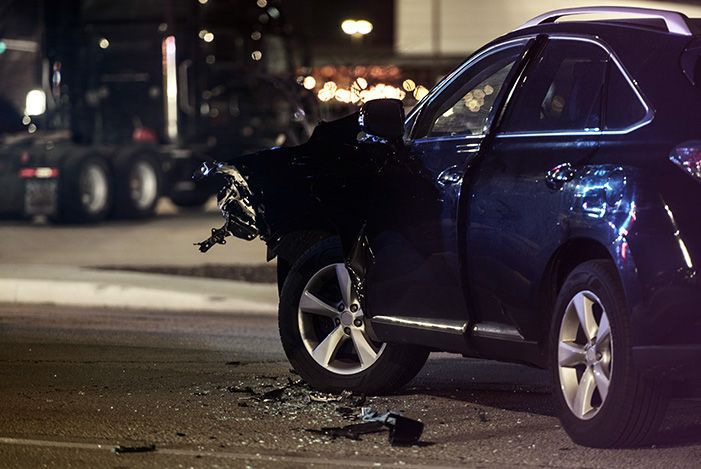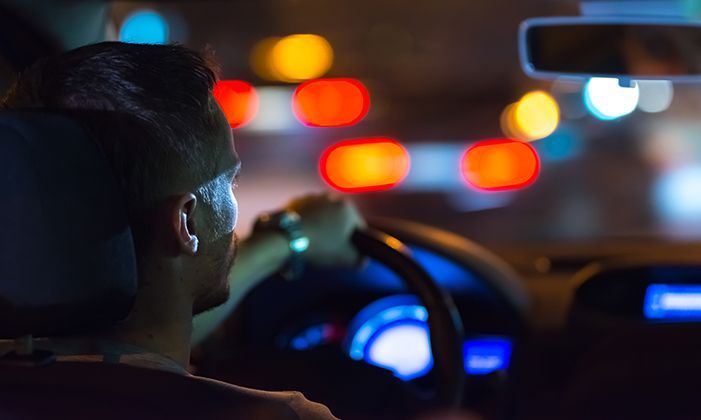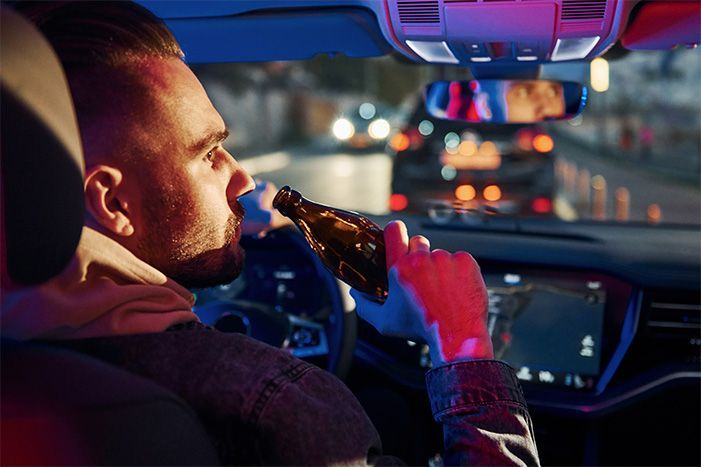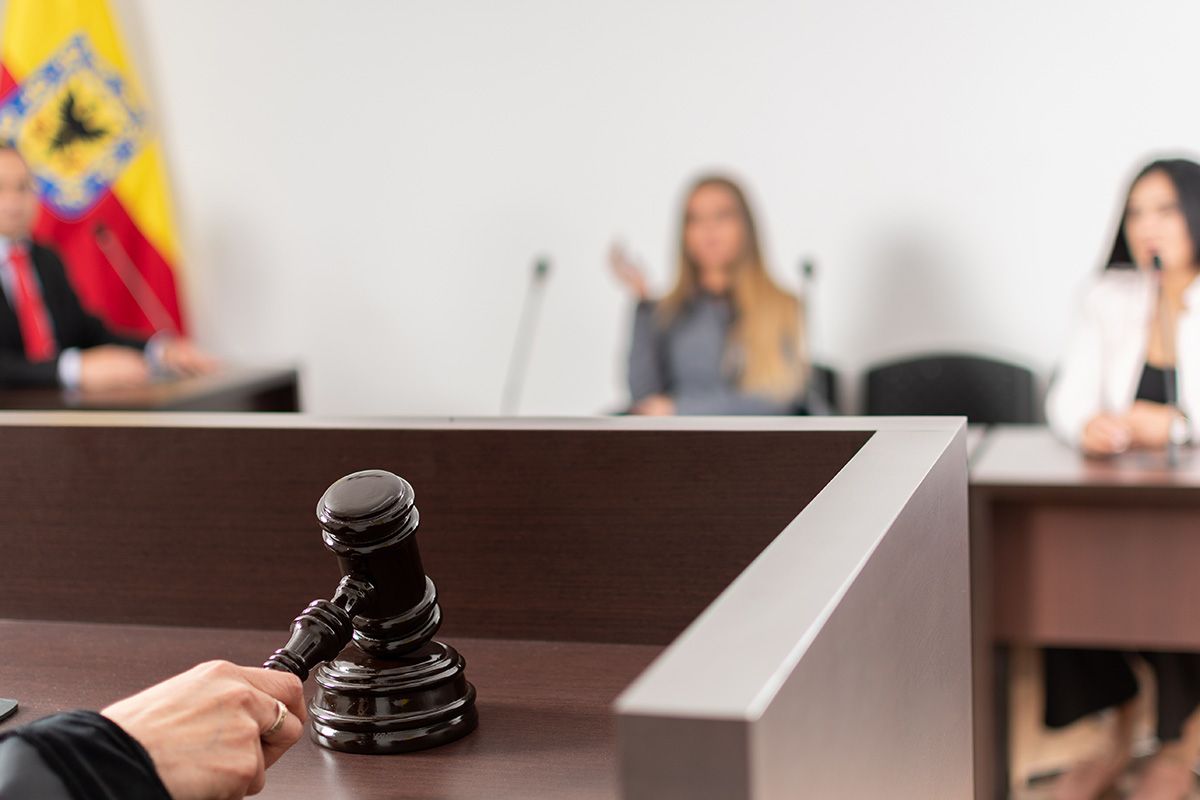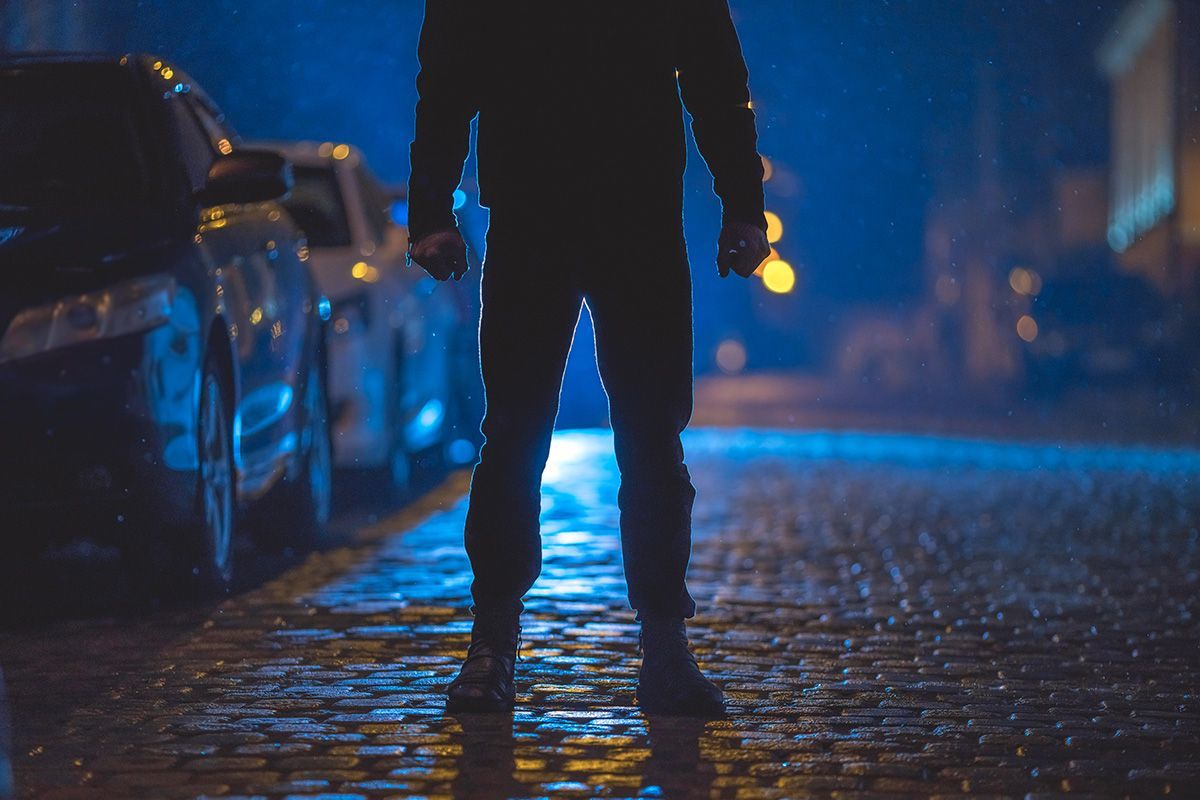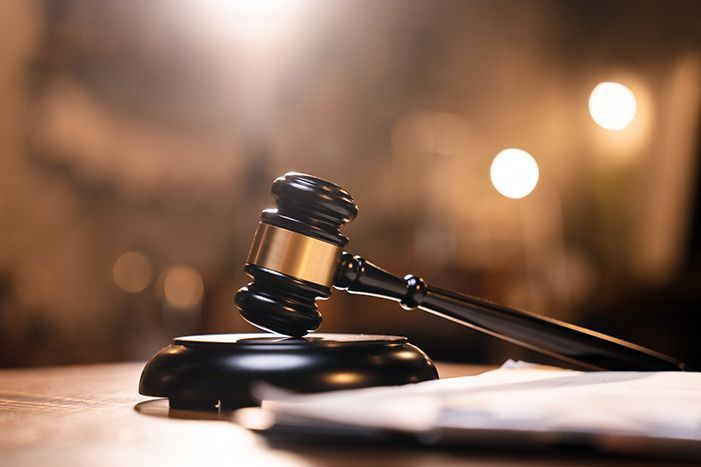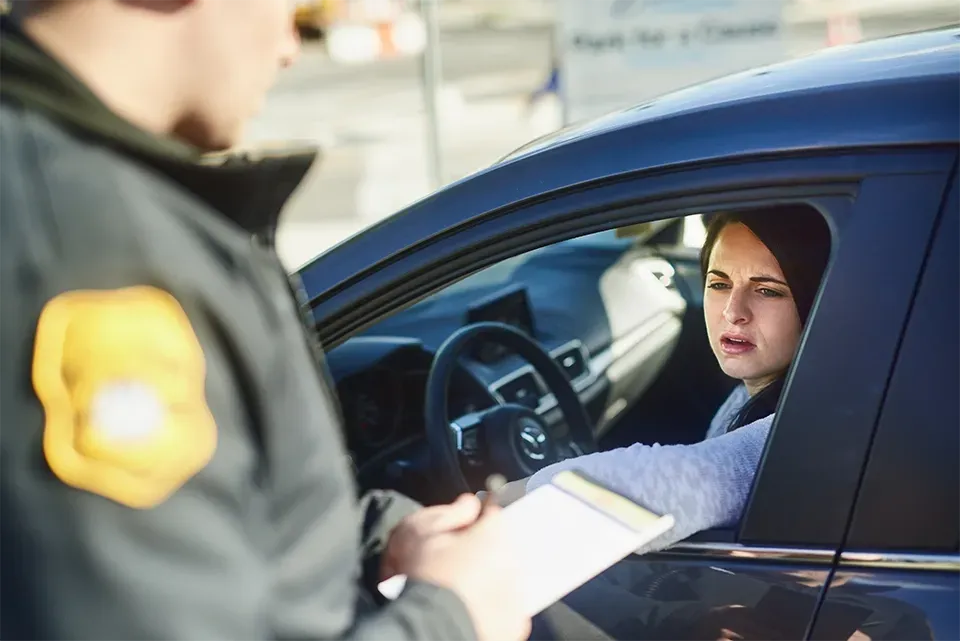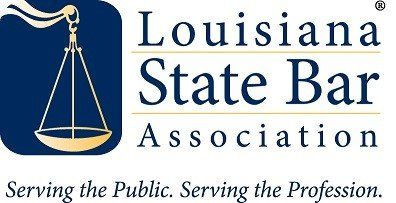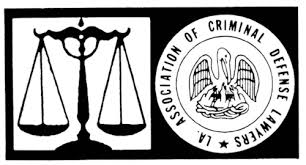FAQs About DWI First Offense in Louisiana
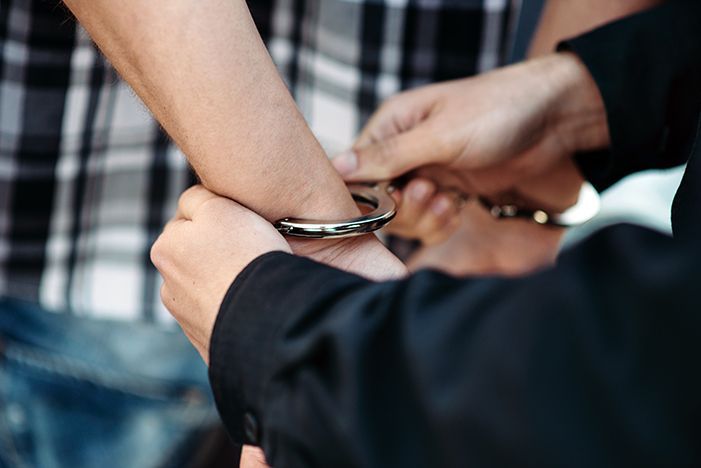
Driving while intoxicated (DWI) or driving under the influence (DUI) is a serious offense in Louisiana, with far-reaching legal and financial implications for those convicted. According to data from the LSU Center for Analytics & Research in Transportation Safety, 31% of motor vehicle crashes in Louisiana in 2022 were alcohol-related, and there were 261 fatalities caused by alcohol-impaired driving. For many of these drivers, it was their first offense DWI.
Understanding Louisiana's DWI laws and the potential ramifications of a conviction is important for anyone facing these charges. In this article, we'll answer frequently asked questions about DWI first offenses in Louisiana, covering everything from legal definitions and penalties to your rights and what to expect during the DWI process. Whether you're a Louisiana resident or visitor, it's essential to know how a DWI first offense can impact your life and what steps you can take to protect your future.
Understanding DWI in Louisiana: What Constitutes a DWI First Offense?
In Louisiana, a person can be charged with DWI if they operate a motor vehicle while under the influence of alcohol or drugs to the extent that it impairs their ability to drive safely. The legal limit for blood alcohol concentration (BAC) is 0.08% for drivers 21 and older, 0.02% for drivers under 21, and 0.04% for commercial drivers. However, even if your blood alcohol concentration BAC is below the legal limit, you can still be charged with drunk driving if there is evidence that your driving was impaired.
A first time DUI offense is typically classified as a misdemeanor and can result in penalties such as fines, jail time, and license suspension. It's important to note that Louisiana has an implied consent law, which means that by driving on the state's roads, you have implicitly agreed to submit to chemical testing if suspected of DWI. Refusal to take a chemical test can result in a one-year driver's license suspension for a first offense DUI, in addition to any other DWI penalties imposed if convicted.
Police officers typically determine impairment through field sobriety tests, such as the walk-and-turn or one-leg stand tests, and chemical testing of breath, blood, or urine to measure blood alcohol content. If your blood alcohol concentration exceeds the legal limit or you show signs of impairment, you can be arrested for a DWI first offense in Louisiana.
DWI Laws in Louisiana
Overview of Louisiana DWI Laws
Louisiana DWI laws are governed by Louisiana Revised Statute 14:98, which defines DWI as operating a vehicle while under the influence of alcohol, drugs, or any substance that impairs the ability to operate a vehicle safely. The statute outlines the legal thresholds for impairment and the penalties for violating these laws.
Penalties can range from fines and license suspension to jail time, depending on the severity of the offense and any prior convictions. Understanding these laws is crucial for anyone facing a DWI charge, as the consequences can be life-altering.
Child Endangerment Law
In Louisiana, child endangerment is a serious offense that can result in enhanced penalties for DWI. If a minor is present in the vehicle at the time of the offense, the driver may face additional charges and penalties, including longer jail sentences and higher fines. This is because the state recognizes the heightened risk and potential harm to children when an impaired driver is behind the wheel.
Under Louisiana's child endangerment law, having a child passenger during a DWI offense can lead to severe legal repercussions, emphasizing the importance of responsible driving.
Blood Alcohol Concentration Limit
In Louisiana, the blood alcohol concentration (BAC) limit is 0.08% for drivers aged 21 and over. For commercial drivers, the BAC limit is 0.04%, and for drivers under the age of 21, the BAC limit is 0.02%. These limits are strictly enforced to prevent impaired driving and ensure road safety. If a driver's BAC is above the legal limit, they may be charged with DWI and face penalties, including fines, license suspension, and jail time.
It's important to note that even if your BAC is below these limits, you can still be charged with DWI if your driving is impaired. Understanding these limits and the associated penalties is essential for all drivers in Louisiana.
What Are the Immediate Consequences of a DWI Arrest?
If you're arrested for a DWI first offense in Louisiana, the immediate consequences can be severe. You'll be taken to jail for booking, and your vehicle may be impounded. Upon arrest, your driver's license will be suspended for 90 days. Louisiana DUI laws dictate these immediate consequences, including booking, vehicle impoundment, and license suspension.
To secure your release from jail, you may need to post bail. After your DWI arrest, a series of legal proceedings will follow. You'll be given a date for an arraignment where you'll enter a plea of guilty, not guilty, or no contest to the DUI charges. If you plead not guilty, your Louisiana DWI case will proceed to trial.
Throughout this DWI process, it's vital to have an experienced DWI lawyer by your side to protect your rights and help you navigate the complex legal system. If you're facing a DWI charge in New Orleans, contact DWI Attorney Lance Robinson for help.
What Penalties Can I Face for a First Offense DWI?
The
Louisiana DWI law outlines the penalties for a first offense, including fines, jail time, and license suspension. The penalties for a DWI first offense in Louisiana can be severe and long-lasting. Let's break them down into criminal penalties, administrative penalties, and additional requirements.
Criminal Penalties
If convicted of a first offense DWI, you could face:
- Up to 6 months in jail (with a mandatory minimum of 2 days for a BAC of 0.20% or higher)
- A fine of $300 to $1,000 (plus court costs)
- Up to 2 years of probation
- 32 hours of court-approved community service
These criminal penalties can have a significant impact on your life, leading to lost income, strained relationships, and a permanent criminal record.
Administrative Penalties
In addition to criminal penalties, you'll face administrative consequences through the Louisiana Department of Motor Vehicles (DMV):
- Driver's license suspension of 90 days (1 year for BAC of 0.20% or higher)
- Temporary driving privileges may be granted for work, school, or substance abuse treatment
- Ignition interlock device installation for 12 months for BAC of 0.20% or higher
An ignition interlock device is a breathalyzer connected to your vehicle's ignition system. It requires you to provide a clean breath sample before the car will start, ensuring that you're not driving under the influence. Installation and maintenance of an ignition interlock device can be costly and inconvenient.
If you have a commercial driver's license (CDL), a DWI conviction will disqualify you from operating a commercial motor vehicle for one year. A second offense will result in a lifetime CDL disqualification, effectively ending your career as a commercial driver.
Additional Requirements
Depending on the circumstances of your case, you may be required to:
- Complete a court-approved substance abuse program
- Attend a driver improvement program
- Install an ignition interlock device on your vehicle
- File an SR-22 proof of financial responsibility form with the DMV
A DUI conviction can also lead to significant insurance premium increases. Some companies may even cancel your policy altogether, making it difficult and expensive to obtain coverage in the future. Your credit score may also take a hit, as some lenders view a DWI conviction as a sign of irresponsibility.
How Does a First Offense Compare to Subsequent Offenses?
Louisiana has a lookback period of 10 years for DWI offenses, meaning that any prior conviction within the past decade will count as a previous offense when determining sentencing for a current DWI charge. This is important to understand, as the penalties for subsequent offenses are much harsher than those for a first offense DWI.
A Louisiana DWI offense carries escalating penalties for multiple convictions, including longer jail sentences and higher fines. Compared to a first offense, the penalties for subsequent DWIs in Louisiana are much more severe:
- Second offense DWI: 30 days to 6 months in jail, $750 to $1,000 fine, 1-year license suspension, 240 hours of community service, and 3-year ignition interlock requirement
- Third offense DWI: 1 to 5 years in prison, $2,000 fine, 1-year license suspension, 6-month home incarceration, and 3-year ignition interlock requirement
- Fourth or subsequent offense: Felony charge with 10 to 30 years in prison, $5,000 fine, and offender's vehicle seizure
As you can see, the consequences of multiple DWI convictions in Louisiana can be life-altering, with lengthy jail sentences, steep fines, and long-term license suspensions. It's crucial to take steps to avoid subsequent offenses and seek the help of an experienced DWI attorney if facing these charges.
What Are the Aggravating Factors?
Louisiana law outlines specific aggravating factors that can enhance the penalties for a DWI first offense, such as high BAC, causing injury, or having a child passenger. Certain aggravating factors can enhance the penalties for a DWI first offense in Louisiana:
- BAC of 0.15% or higher
- Causing bodily injury or death
- Having a child passenger under 12 (considered child endangerment violations under Louisiana's child endangerment law and child endangerment statute)
- Speeding or reckless driving
- Refusing a chemical test
- Having an open container in the offender's vehicle
The presence of these factors can lead to increased fines, longer jail sentences, and additional charges like vehicular homicide or negligent injury. For example, if you're convicted of DWI with a child passenger, you could face up to 6 months in jail, a $1,000 fine, and a 1-year license suspension in addition to the standard DWI penalties.
How Long Will a DWI First Offense Stay on My Record?
In Louisiana, a DWI conviction will remain on your criminal record permanently unless you obtain an expungement. To be eligible for a Louisiana DWI expungement, you must meet certain criteria:
- 10 years have passed since the completion of your sentence
- You have no other pending charges
- You have no felony offenses convictions
Even if expunged, a previous DWI conviction can still be used to enhance penalties for any subsequent DWI offenses. Additionally, an expunged DWI may still be visible to law enforcement and may need to be disclosed on certain job applications, housing applications, and professional licensing forms.
Potential employers, landlords, and others who access criminal records may still be able to see a DWI conviction, even if it has been expunged.
What Are My Legal Rights if Arrested for DWI?
If you're facing a DWI first offense charge in Louisiana, it's essential to understand your legal rights:
- You have the right to refuse field sobriety tests (but not chemical testing under Louisiana's implied consent laws)
- You have the right to an independent chemical test administered by a healthcare professional of your choice
- You have the right to legal representation from a DWI defense attorney or DWI lawyer
- You have the right to challenge the suspension of your driving privileges through an administrative license hearing process
- You have the right to a jury trial if facing felony offenses DWI charges
- You have the right to confront witnesses and evidence against you
- You have the right against self-incrimination
It's important to exercise these rights and seek the advice of a skilled DWI attorney who can protect your interests throughout the legal process. An experienced DWI lawyer can help you understand the Louisiana DWI laws that apply to your case, build a strong defense strategy, and fight to minimize the consequences of a DWI conviction.
Common DWI Defense Strategies
An experienced DWI lawyer can employ various defense strategies to fight your charges or minimize the consequences:
- Challenging the legality of the initial traffic stop
- Questioning the accuracy of field sobriety tests or chemical testing procedures
- Arguing that your BAC was rising and was below the legal limit while driving
- Exposing errors in the police report or other documentation
- Negotiating for reduced charges or alternative sentencing (e.g., diversion programs)
- Seeking suppression of evidence obtained through illegal searches or seizures
Your DWI attorney will review the unique circumstances of your Louisiana DWI case to determine the most effective defense strategy. In some cases, it may be possible to prove DWI allegations, while in others, negotiating a plea deal or seeking alternative sentencing may be the best course of action.
What Are the Financial Implications of a DWI?
Beyond fines and legal fees, a DWI first offense conviction can have far-reaching financial consequences:
- Increased insurance premiums (often thousands of dollars per year)
- Installation and maintenance costs for ignition interlock devices
- Lost income due to jail time or license suspension
- Fees for substance abuse treatment, driver improvement programs, and license reinstatement
- Long-term impact on earning potential due to a criminal record
A single DWI conviction can easily cost upwards of $10,000 when accounting for all direct and indirect expenses. In some cases, a DUI can ruin your financial stability and may even negatively impact your credit score, making it difficult to secure loans or housing in the future.
How Can I Protect My Rights?
If you're arrested for a DWI first offense in Louisiana, the following steps can help protect your rights:
- Remain calm and respectful, but exercise your right to remain silent.
- Contact an experienced DWI lawyer immediately.
- Request an independent chemical test if you suspect inaccuracies in the police-administered test.
- Gather all relevant documentation, including the police report, bail papers, and court summons.
- Attend all required court appearances and DMV license hearings.
- Avoid discussing your case with anyone except your DWI attorney.
- Follow your DWI defense attorney's advice and recommendations throughout the DWI process.
Common Mistakes to Avoid
- Admitting guilt or apologizing to the police officer
- Attempting to represent yourself in court
- Missing court dates or deadlines
- Violating the terms of your probation or driving privileges restrictions
- Posting about your case on social media
What to Expect During the DWI Legal Process
The timeline for a DWI first offense case in Louisiana can vary depending on the complexity of the case and the court's caseload. However, here's a general overview of what you can expect:
- Arraignment (2-4 weeks after DWI arrest): You'll enter a plea of guilty, not guilty, or no contest to the DUI charge.
- Pre-trial hearings (2-6 months after arraignment): Your DWI lawyer will negotiate with prosecutors, file motions, and gather evidence.
- Trial (6-12 months after DWI arrest): If a plea deal isn't reached, your Louisiana DWI case will proceed to trial before a judge or jury.
- Sentencing (1-4 weeks after trial or plea): If convicted, the judge will impose penalties based on the circumstances of your case, which may include jail time, fines, license suspension, ignition interlock device installation, and substance abuse programs.
Throughout this DWI process, your DWI defense attorney will advise you on the best course of action, whether that's accepting a plea bargain, filing motions to suppress evidence, or proceeding to trial. In some cases, first-time offenders may be eligible for diversion programs that allow them to avoid a conviction if they complete certain requirements, such as substance abuse treatment or community service, within up to a year.
Conclusion
Facing a DWI first offense in Louisiana can be a daunting experience with potentially severe consequences. Understanding your rights, the legal process, and the potential penalties is vital for navigating this challenging situation. By working with an experienced DWI attorney like Lance J. Robinson and following the proper steps, you can protect your rights and work towards the best possible outcome for your case.
Remember, the decisions you make during this time can have long-lasting effects on your future, so it's important to approach the situation with caution and seek professional legal guidance. If you or a loved one is facing a DWI charge in the New Orleans area, contact DWI Attorney Lance Robinson for help.
